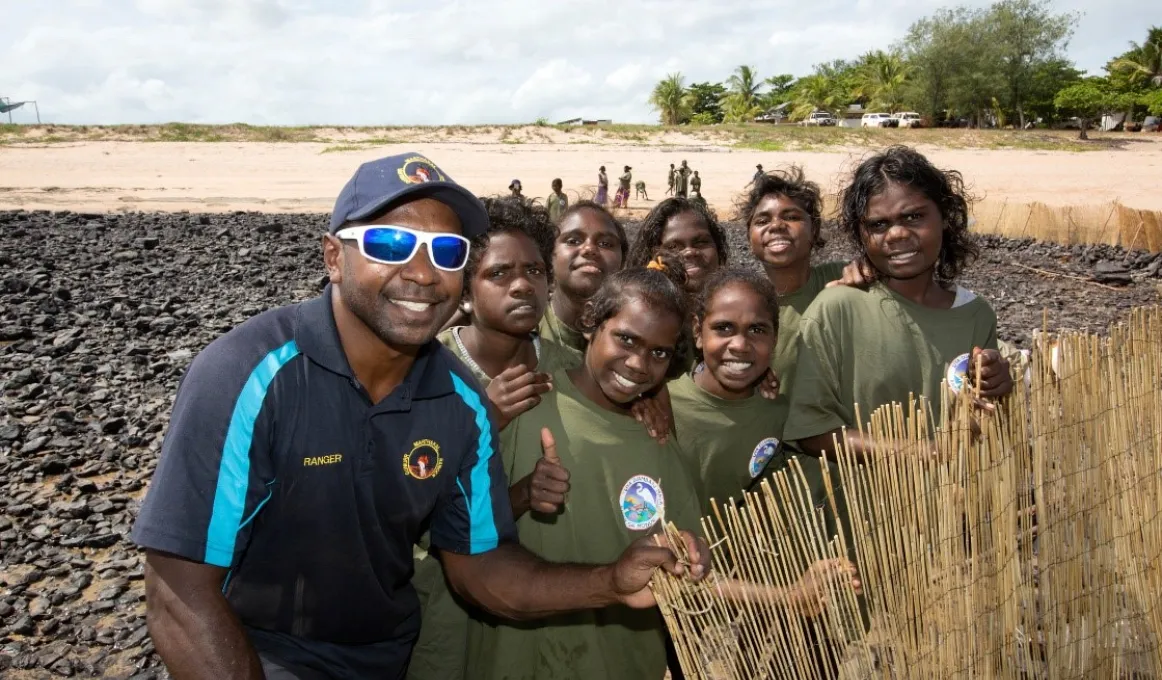Getting children back to school using grass roots, local language activities

Attendance at school and quality of learning has improved at Galiwin’ku through the Learning on Country program which features grass roots, local language activities.
‘We are trying a new approach and its working.’
So said Dr Bentley James Learning on Country (LoC) coordinator at Galiwin’ku on Elcho Island in the Northern Territory.
‘We are using local cultural activities to attract children back to school and maintain attendance. Galiwin’ku Learning on Country is using engagement in ground up, grass roots local language activities developed by Yolŋu on site, in language. That’s why it works.’
Megall Barrtja, a year 12 student at Shepherdson College, is proof of the new approach to learning.
‘Learning about country gives me confidence in my future at home on my country,’ Megall said.
‘Now I like going to school, learning about ‘two ways’ science, maths and English as it helps me tell visitors to my country about the meaning of country, and together we can save it.’
Galiwin’ku LoC is a collaboration of five community organs or ‘five trees’ as they are also called. They are the Rangers, Shepherdson College, Yalu (Community-Outreach), Diḻak (Elders) and Wäŋa (the land).
‘Each possess separate authority, but under the ground their roots join-together to enhance the power and creative energy of the Learning on Country program,’ Bentley said.
This more than ‘whole community’ collaboration includes land and sea in its vision of the future.
Marcus Lacey has been a Gumurr Marthakal Ranger for the past year.
‘Surrounded by songs of the island, we are learning and refurbishing the fish traps of the homelands, sharing in knowledge of country with old people,’ Marcus said.
‘Only we can do these locality based cultural activities because we are from here. Investigating tidal movement and local strategies for engaging rising sea levels and global warming brings us closer together.’
‘Understanding the cycles of seasonal winds, early dry season burning for carbon abatement, rubbish collection, plastics recycling and care for country provides valuable involvement with our island home.’
Bentley said there is positive improvement in attendance and in the quality of learning.
‘Here old-fashioned engagement is building a generation of resilient young remote Australians ready for fee for service employment on their country,’ Bentley said.
‘They know the future, like the past, relies on knowledge and nurture of country. Little surprise that young people are finding learning on country meaningful and attractive.’
Find out more
Learning on Country is a culturally relevant school program that contributes to three Government priority areas, under the Indigenous Advancement Strategy, by linking the Australian curriculum subjects with field based experiential learning and data collection.